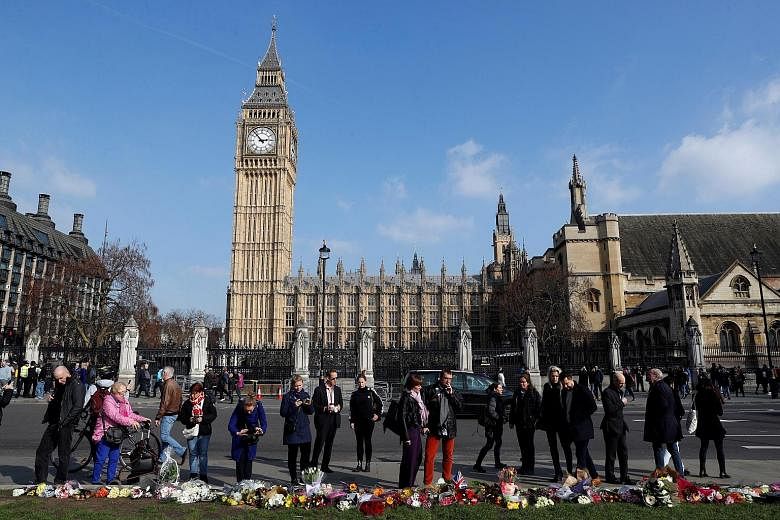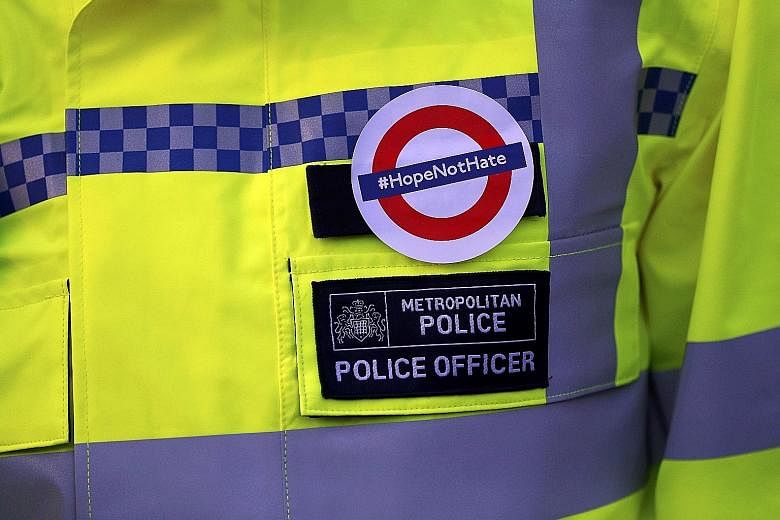LONDON • Britain's counter-terrorism strategy should be reviewed to take account of the threat from older extremists after the Westminster attack, said the Daily Telegraph yesterday, quoting senior experts.
Terrorist profiling currently regards those in their teens and 20s as posing the greatest risk, and the country's anti-radicalisation efforts focus on schools and social media.
But Khalid Masood, who killed four people in London last Wednesday, was 52 - making him the oldest Islamist terrorist to launch an attack in Britain. The average age of previous terrorists and suspects was 22.
MI5, Britain's domestic security agency, is understood by the Telegraph to have launched a review into how it handled its intelligence on Masood - who also went by Adrian Ajao - after it investigated him over "violent extremism" but decided he was not a significant risk.
The attack will likely spark a global discussion among intelligence services on whether suspect profiles should be re-evaluated, given claims that Masood was "re-radicalised" in later life. However, senior Whitehall sources said last night that MI5 had made the correct assessment of Masood, based on the intelligence available and he was not discounted as a threat because of his age.
Details have emerged of Masood's violent, unpredictable past, with a former friend from the village of Northiam, in England's south-east, describing him as a cocaine-snorting thug with a "bloodlust" who in 2000 sought professional help to handle his urges to kill people.
A relative of his former wife Farzana Malik told The Mirror tabloid he was a "psychopath" who was violent and controlling towards Ms Malik, 38, over "what she wore, where she went, everything". She reportedly fled the marital home three months into their marriage.
It is believed Masood converted to Islam while serving a six-month prison sentence in 2003. He then spent a few years in Saudi Arabia and returned to Britain in 2009.
The Guardian said Masood's age, for now, simply underlines the variety of extremist profiles and the unpredictability of the threat. Most Islamist militants have been between 18 and 35, leading some analysts to conclude they are attracted to radicalism partly as a means to rebel against the previous generation.
Mr David Videcette, a senior counter-terrorism officer who investigated London's public transport bombings in July 2005, said the way threats were assessed needed to be revisited. "There is a tendency to try to profile what a typical terrorist is," he told the Telegraph.
"But this can be very problematic because, of course, not every terrorist fits the profile. Just because he had reached his 50s does not mean that he was no longer a danger. MI5 have a grid system with the most dangerous figures at the top. If you are a long way down the list, because you have only been on the periphery of something, then the reality is there will not be a lot of resources being put into keeping tabs on you."
Lord Alexander Carlile, a former independent reviewer of terrorism legislation, said: "I doubt Masood's age was the only reason he was taken off the list, but it might well have been a factor... It looks like the judgment made was there was very little material to justify expending valuable resources."


